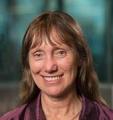Prof. Kerrie Mengersen
Fellow
- Club/association Details
-
Role(s): Fellow Level: Full Status: Active Office(s): Councillor Committees/Teams: Council
- Bio/Profile
-
Kerrie Mengersen graduated in 1985 with a Bachelor of Arts (Honours Class 1), majoring in Mathematics (Statistics) and Computing, and received her PhD in Mathematical Statistics in 1989 from the University of New England, New South Wales. Her PhD thesis was on the topic of ranking and selection under the supervision of Professor Eve Bofinger, one of the pioneer female university researchers in regional Australia.
Following graduation, she was recruited to a commercial statistical consulting company, which provided her with strong experience in a wide range of statistical methods in the context of diverse applied problems. Her career since then has been characterised by a dual focus of engaging with and developing new statistical methodology motivated by, and motivating, challenging statistical applications.
In 2016, QUT awarded the title of Distinguished Professor to Professor Kerrie Mengersen in recognition of her outstanding achievements, both nationally and internationally, in mathematics and statistical research. Distinguished Professor Mengersen is acknowledged to be one of the leading researchers in her discipline.
In 2016 Professor Mengersen also received two more prestigious awards: the Statistical Society of
Australia’s Pitman Medal, the highest award presented by the Society and the first time it has been presented to a woman, and the Research Excellence award by the Cooperative Research Centre for Spatial Analysis (CRCSI).In 2018 Professor Mengersen was elected a Fellow of the Australian Academy of Science (AAS); a Fellow of the Academy of Social Sciences in Australia (ASSA); and an Invited Fellow of the Queensland Academy of Arts and Sciences (QAAS)
Research
Distinguished Professor Mengersen focuses on using and developing new statistical and computational methods that can help to solve complex problems in the real world. These problems are in the fields of environment, genetics, health and medicine, and industry. She enjoys working with a diverse range of people doing outstanding things in many different areas, and contributing expertise in an important component of their work. Her research interests include:
- complex systems modelling
- Bayesian statistical modelling, computational methods and applications
- Bayesian networks
- applied statistics.


